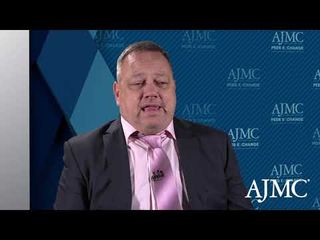
HIV
Latest News

Latest Videos

CME Content
More News
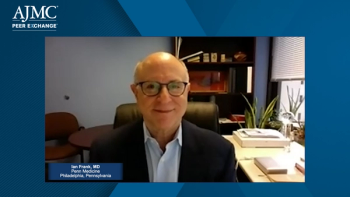
Ian Frank, MD and Jeffrey Crowley, MPH describe the CDC PrEP Care System Process and eligibility criteria for receiving PrEP.
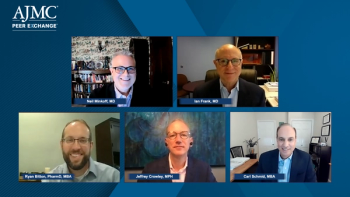
A multidisciplinary panel of experts provides an overview of the economic burden of HIV and the role of pre-exposure prophylaxis (PrEP) in preventing HIV transmission.

The Supreme Court recently upheld the Affordable Care Act, under which HIV and AIDS are considered preexisting conditions, by a vote of 7 to 2.

Despite gains in HIV testing rates among individuals 13 years and older, total testing rates remain at suboptimal levels among both commercial insurance and Medicaid beneficiaries.

Survey responses from the San Francisco Bay Area, from men who have sex with men (MSM), show differing behavioral and social influences on the risk of sexually transmitted infections (STIs).

As a specialized health care service, telemedicine was shown to be comparable to traditional care for persons living with HIV in rural Georgia.
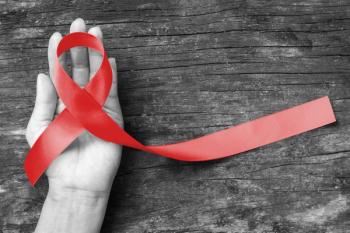
Compared with individuals without known HIV infection, persons living with HIV had higher rates of sudden cardiac death and increased interstitial myocardial fibrosis in a new New England Journal of Medicine study.

The pandemic led to decreased rates of routine childhood vaccinations; changes could inhibit use of pre-exposure prophylaxis (PrEP); officials extend the shelf-life of the Johnson & Johnson (J&J) COVID-19 vaccine.

People-first language should be a cultural norm, with patients’ best interests always coming first, and we must encourage everyone to become change agents, according to Milena Murray, PharmD, MSc, BCIDP, AAHIVP, Midwestern University College of Pharmacy.

Adherence to antiretroviral therapy (ART) can be improved by health care providers reinforcing ART dispensing models and creating ART models that promote situational stability, according to a new study.

This week marks the 40th anniversary of the CDC's June 5, 1981, Morbidity and Mortality Weekly Report describing rare instances of immunocompromised status among 5 homosexual men in Los Angeles. The American Journal of Managed Care® spoke recently with lead author Michael Gottlieb, MD, who was the first to describe what would come to be known as HIV and AIDS.

On the eve of the 40th anniversary of the CDC’s first report on what would become known as HIV/AIDS, Perry N. Halkitis, PhD, MS, MPH, sends out an urgent call to continue this fight and rededicate resources to finding a cure.

In the June 5, 1981, issue of the Morbidity and Mortality Weekly Report from the CDC, a brief 3-page report appeared describing 5 rare cases of Pneumocystis carinii pneumonia among 5 homosexual men in Los Angeles. Our full Q&A with the lead author on that report, Michael Gottlieb, MD, will appear next week. Below is a video preview.

Between 2014 and 2018, annual diagnoses for HIV in an emergency department (ED) in Hamilton County, Ohio, more than doubled, from 20 to 42.

Injectable versions of HIV treatments and pre-exposure prophylaxis will be a game changer in terms of convenience over daily pills, noted Perry N. Halkitis, PhD, MS, MPH, dean of the Rutgers School of Public Health and director of the Center for Health, Identity, Behavior and Prevention Studies.
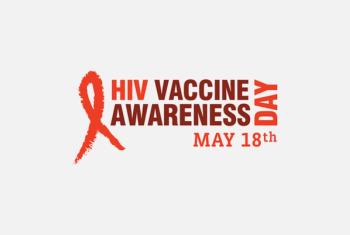
May 18 is HIV Vaccine Awareness Day. Here we explore just a few of the many reasons why a vaccine that is effective at preventing the acquisition of HIV and at reducing the viral load in those currently living with HIV remains an elusive goal.

Bruce House in Ottawa, Ontario, Canada, has been serving individuals living with HIV and AIDS for 33 years, and in this interview, Doug Cooper, former manager of client programs and services, discusses the history of the organization.

Abner Mason, CEO and founder of ConsejoSano, highlights how lessons learned from his early days in the fight against HIV and AIDS in Africa can inform improvements in health equity, especially in light of the COVID-19 pandemic.

The United States agreed to temporarily suspend COVID-19 vaccine patents; HIV does not appear to impact efficacy of AstraZeneca's COVID-19 vaccine; cases of COVID-19 cases could decrease by July.

Despite overall survival improvements among pediatric patients living with HIV, 20.5% are still lost to follow-up.

Disproportionate rates of HIV and sexually transmitted infections (STIs) among Black women, who have a nearly 4 times higher enrollment rate in community supervision programs, underscores the need for culturally targeted HIV/STI interventions.

There is no reason for the ban on gay men donating blood to exist, emphasized Perry N. Halkitis, PhD, MS, MPH, dean of the Rutgers School of Public Health and director of the Center for Health, Identity, Behavior and Prevention Studies.

Bruce House in Ottawa, Ontario, Canada, has been serving individuals living with HIV and AIDS for 33 years. Here we speak with Patrick Morley, office and communications coordinator.
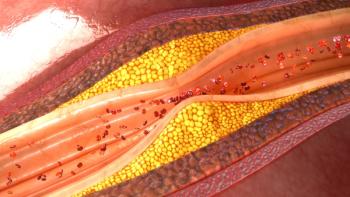
With persons living with HIV increasingly succumbing to age-related diseases, a group of investigators looked into the greater risk of coronary artery disease among these individuals.

For some living with HIV, old wounds have reopened during the COVID-19 pandemic, explained Perry N. Halkitis, PhD, MS, MPH, dean of the Rutgers School of Public Health and director of the Center for Health, Identity, Behavior and Prevention Studies.













